Rubin Naiman in conversation
May 31, 2010
 If I’m nice to be around, I’m sure it’s because I get more rest than most folks.
If I’m nice to be around, I’m sure it’s because I get more rest than most folks.
I have enormous respect for sleep. I consciously avoid certain behaviors that will trip it up or mess with its mystery. I don’t, for example, blow cigarette smoke at it or push it away with too much alcohol and processed items claiming to be food. I’m abiding and gentle with it and we rendezvous at pretty much the same time every night. It rewards me for my consistency.
Looking around, though, I can tell I’m not on trend. Since the go-go eighties more people have been adopting a results-oriented approach to sleep. That same intense, winning drive they rely on during work, exercise and sex is is being applied to this state of natural suspension.
As a journalist who covers social trends, I feel the pressure to conform all the time. Editors — one of the most sleep-deprived groups on the planet — only have so many ways to tell a story and boiling down sleep, flatter abs and bigger orgasms into lists and blinking cover lines that claim you can achieve it all in ten easy steps attracts eyes and improves SEO, but …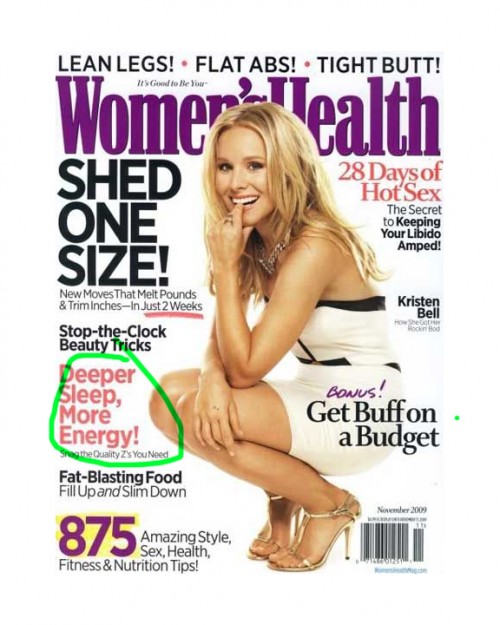 it completely misses the bigger picture. I wince at these kind of assignments and I try to avoid them. But if you Google me, you’ll see I don’t have a perfect track record.
it completely misses the bigger picture. I wince at these kind of assignments and I try to avoid them. But if you Google me, you’ll see I don’t have a perfect track record.
When I feel discouraged by the direction society is taking (or I’m taking), that’s when I pick up the phone and talk to an expert. Call it blogging as free therapy.
In my latest session, I spoke with Rubin Naiman, Ph.D., shown below. Rubin is the Integrative Sleep and Dream Health Director for the Circadian Health Associates and a clinical assistant professor of medicine at the University of Arizona’s Program in Integrative Medicine.

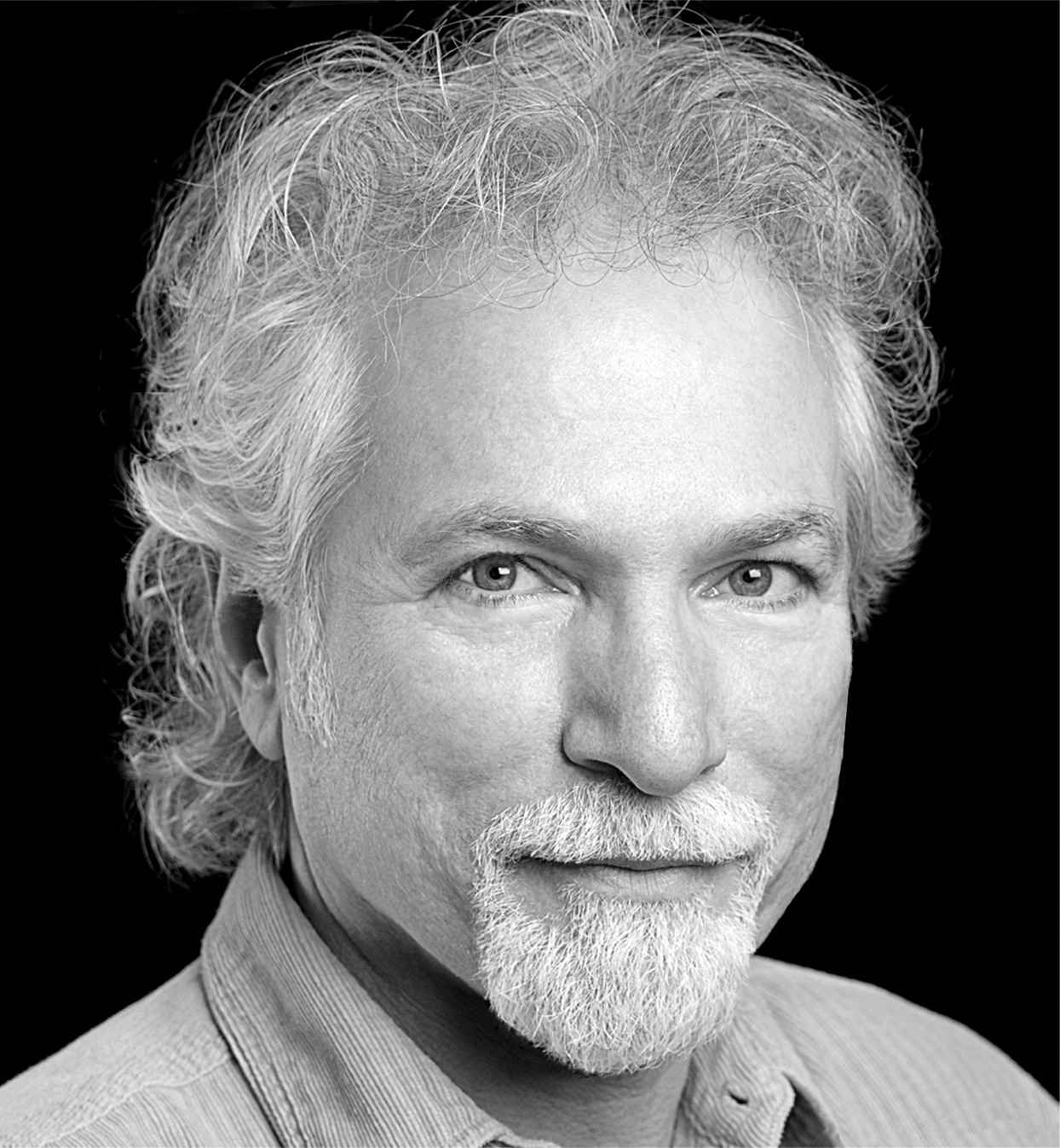 AGJ: What do you think of these sleep pods that offer busy executives a place to tune out for 20 minutes during the day?
AGJ: What do you think of these sleep pods that offer busy executives a place to tune out for 20 minutes during the day?
Rubin Naiman: I don’t have a negative reaction, per se. My big concern is that sleep pods and spas that charge $15 for 20-minute power naps are a symptom of a larger cultural misconception, a faulty posture towards sleep. They’re a high-tech response to a low-tech question. The sleep pod, like any sort of tech-supported opportunity to catch up on sleep during the day, is a little like taking a vitamin or a supplement to be healthier. Unless you also make that part of a larger lifestyle effort— like eating well and exercising — it really does no good. In fact, it may do some harm in making people think they have a certain modicum of control.
The concept of power napping seems to come out of that need for control you just mentioned. Even the name— “Power Nap” — stresses me out. It’s like putting a ton of money on draining a halftime free throw.
When I was writing my book, Healing Night, the folks at Random House kept wanting to put the word “POWER” in the title. I resisted. Power is associated with waking consciousness. During the day we’re driven, we’re motivated, we have intentions, we have energy and we want power. The big mistake here is that we unthinkingly import waking, daytime postures and attitudes into the world of sleep and dreams. We’ve lost our sense that sleep is a different kind of consciousness compared to waking. It’s an altered state of consciousness.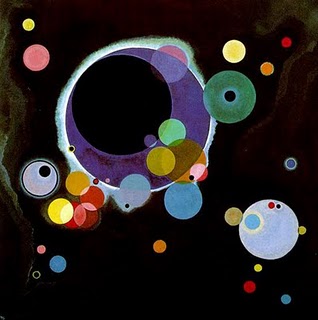
How so?
Well, it’s not simply the lack of waking. We commonly use the phrase “dead to the world” when people are sleeping, which is interesting because it defines sleep as being, not waking. We have a very naïve, waking-world bias towards sleep as a rest period primarily to serve waking. It’s not. It’s an altered state of consciousness in and of itself.
It sounds otherworldy.
It is. There’s an old Beatles song called “Golden Slumbers” that talks about sleep as a way to “get back home.”
The lyrics were actually written by Thomas Dekker, 300 years before Paul McCartney. At that time, people believed sleep was a place, that you weren’t just “dead to this world,” but you actually went to anotherworld. There’s evidence that where we go in sleep is where accomplished meditators have learned to go. It’s a place that’s so deeply serene, so sublimely peaceful that most of us don’t have any waking world language to bring it back. For folks, like me, who lived through the sixties and experimented with psychedelics and looked at consciousness in different ways, we got it experientially — and we got it in our hearts — that there’s much more going on in sleep than we believe through the frame of our consensual, waking consciousness.
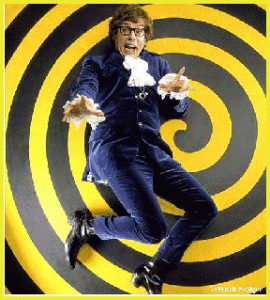
But culture today is less “Woo Woo.” Most of us aren’t sitting around dropping acid and learning to play the sitar [laughs]. We’re more hooked on science, on gadgets and data.
That’s true. We’re living in an Information Age.
… and most of us feel like we’re missing out on some opportunity if we’re not plugged in all the time (our need for more and more information is actually evolutionary, as I wrote back on January 30th)
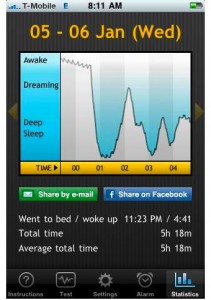 Right, and I’d say our addiction to information is contributing to our mechanistic approach to sleep. The Sleep Cyle app from Apple is proof of that. It illustrates how we need to reduce everything to the physical world. In my field, psychology, there’s a trend right now toward neuroreductionism, or reducing everything in terms of brain mechanisms. There are all these studies now that show really interesting brain changes — EEG changes and neurocognitive changes — associated with meditating. People have been meditating for thousands and thousands of years, but now scans can show us how the brain in a meditative state produces more gamma waves associated with deep peace. That’s all fine. But you can lean on science so heavily that you won’t accept or trust the experience itself. When I meditate, I don’t need someone monitoring my brainwaves to tell me I’m peaceful, or monitoring my belly to tell me I’m hungry? I already know that.
Right, and I’d say our addiction to information is contributing to our mechanistic approach to sleep. The Sleep Cyle app from Apple is proof of that. It illustrates how we need to reduce everything to the physical world. In my field, psychology, there’s a trend right now toward neuroreductionism, or reducing everything in terms of brain mechanisms. There are all these studies now that show really interesting brain changes — EEG changes and neurocognitive changes — associated with meditating. People have been meditating for thousands and thousands of years, but now scans can show us how the brain in a meditative state produces more gamma waves associated with deep peace. That’s all fine. But you can lean on science so heavily that you won’t accept or trust the experience itself. When I meditate, I don’t need someone monitoring my brainwaves to tell me I’m peaceful, or monitoring my belly to tell me I’m hungry? I already know that.
But aren’t these scans useful?
Yes, but only when they’re part of a bigger picture. I’m a member of the American Academy of Sleep Medicine, and my colleagues are primarily physicians. They’re all interested in the brain, in physiology, in neurochemical shifts during sleep. I think all of those things are critically important, but, like I said, they miss the consciousness part, which I’ve made it my mission to emphasize. You can’t reduce sleep to brain mechanisms any more than you 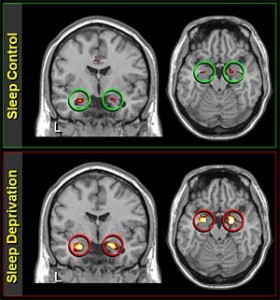 can reduce to love to a series of physical mechanisms. We know there are changes in the brain mechanisms that are the result of falling in love, but nobody would ever say they have discovered a technology that helps you fall in love and stay in love. Our mechanistic approach reduces sleep to these squiggly EEG tracings, to firing neurons and squirting neurochemicals. Intuitively, though, we all know it’s much more than that. Like love, we know the sweetness of a good night’s sleep. We know how it feels to descend into it and to come up out of it in next morning.
can reduce to love to a series of physical mechanisms. We know there are changes in the brain mechanisms that are the result of falling in love, but nobody would ever say they have discovered a technology that helps you fall in love and stay in love. Our mechanistic approach reduces sleep to these squiggly EEG tracings, to firing neurons and squirting neurochemicals. Intuitively, though, we all know it’s much more than that. Like love, we know the sweetness of a good night’s sleep. We know how it feels to descend into it and to come up out of it in next morning.
Do you think our scientific bent and addiction to information has made us forget how to rest?
Yes. I read a blogger recently who wrote that the average person today consumes more information in a month than people consumed in a lifetime 100 years ago. I don’t know where her data came from, but it points to a true direction. We overconsume food, information, even light (I’ve written about this a lot about how we’re overexposed to light at night). Some say that we’re even over-breathing.
But we’re not over resting.
No. We’re constantly questing. People don’t hit the brakes until the car is already in the garage. Most people don’t even try and slow down until they get into bed. Part of the problem is, we confuse rest with recreation. We think going to the movies is rest. It’s fun, but it’s not rest. In the same way we have to learn to walk before we can run, we absolutely have to learn to rest before we sleep. Also, tens of millions of people are confusing inebriation with rest. You know, I’m going to rest and smoke a joint, or a have a couple of beers.
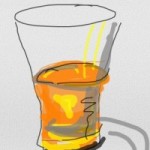
Do you think we avoid slowing down because we’re afraid to be alone with ourselves?
I do. When we hit the brakes — which rest and sleep require us to do — everything we’ve stashed in the back of the wagon comes flying forward. Very few people have a true relationship with themselves when they’re at rest. That’s why they’re in constant motion.
How does this play out in our routines at bedtime?
I have data documenting what most people do at bedtime (this is US data, but it’s probably very similar in Canada). The vast majority of us are either sitting up in bed, reading or watching television. There’s a curious phenomenon happening here, and I’ve talked to thousands of people about it. As soon as people start to nod off, they won’t let themselves descend slowly into sleep. They’d rather go out like a light. If you go out like a light when your head hits the pillow, not only is that not a sign of a good sleep it’s a sign of an excessive sleep debt. It’s probably a symptom of a sleep disorder.
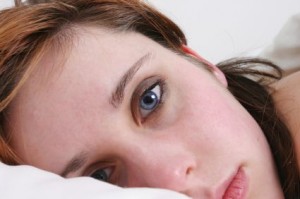 And the reason for that, I think, is that people are reluctant to spend 15 or 20 minutes alone in the dark with themselves. All of that stuff that they’ve been running from, that’s been clipping at their heels, starts to come up. There’s a growing mountain of personal psychological stuff, stress from the day, material that goes back to childhood that most of us never face. The only chance it has to come up is this little window of time when our guard goes down. Over the years, the background noise gets louder and louder and we need harder and harder stuff to put ourselves down. So people drink more and take more medication. I have this belief that, unconsciously, we maintain an excessive sleep debt to help us override our ghosts.
And the reason for that, I think, is that people are reluctant to spend 15 or 20 minutes alone in the dark with themselves. All of that stuff that they’ve been running from, that’s been clipping at their heels, starts to come up. There’s a growing mountain of personal psychological stuff, stress from the day, material that goes back to childhood that most of us never face. The only chance it has to come up is this little window of time when our guard goes down. Over the years, the background noise gets louder and louder and we need harder and harder stuff to put ourselves down. So people drink more and take more medication. I have this belief that, unconsciously, we maintain an excessive sleep debt to help us override our ghosts.
[pullquote]I have this belief that, unconsciously, we are deliberately sleep deprived so we can avoid being alone with ourselves.[/pullquote]
Can you improve your sleep by laying out your bedroom differently?
Yes. Most of us are accustomed to bringing lots of entertainment and gadgets into the bedroom. People work on their laptops in bed. They plug in their cell phones and iPods in bedroom outlets and sleep close to an electric plug-in clock. I suspect most of us sleep closer to our clocks than our spouses. Even the small amount of light from clock radios can trickle through closed eyelids and suppresses our melatonin production. 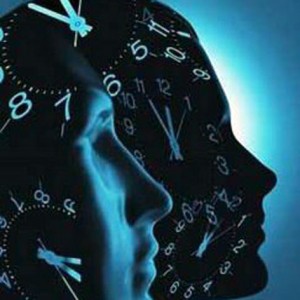 Also, clocks give off an electromagmetic field which further suppresses melatonin. Finally, bedside clocks tell you what time it is. Knowing what time it is in the middle of the night immediately draws you back to waking world consciousness — so, not a good idea.
Also, clocks give off an electromagmetic field which further suppresses melatonin. Finally, bedside clocks tell you what time it is. Knowing what time it is in the middle of the night immediately draws you back to waking world consciousness — so, not a good idea.
Globally speaking, are North Americans the worst sleepers?
We used to be. But today the entire industrialized world approaches sleep the same way. Take Spain. After it became a part of the European Union, it had to adjust and become connected to the rest of the continent to do business. Spain doesn’t shut down in the afternoon for two or three hours anymore. So no more siestas. The thing is, they’re continuing the rest of their lifestyle habits, including eating really late and staying up late. Now we’re seeing a significant jump in Spain in accidents and mishaps and other things associated with sleep loss.
How is the rise of coffee culture affecting sleep?
The smallest cup of coffee at Starbucks is called a “Tall.” I often ask my patients how many cups of coffee they drink a day and they usually say two or three, but I’ve learned to ask how big the cups are, and that’s when they get a bit shy (20 ounces). If you want a standard 8-ounce cup of coffee from Starbucks (called a “short”), they keep those cups hidden behind the counter.
What are you working on right now?
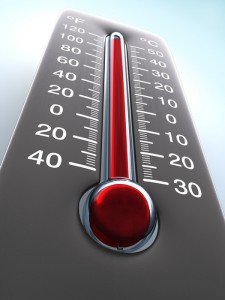 I’m researching something called Night Fever. It’s a new model for understanding sleep disorders. It basically says that we need to look at sleep in terms of a release of energy. When we sleep, we stop consuming energy from the world. At night, the body and the brain do exactly what the planet does when the sun goes down. All of the heat absorbed during the day begins to dissipate. If you monitor environmental temperatures when the sun goes down, it basically drops and steadily decreases through the night and reaches its lowest point just before the dawn before coming back up. That’s exactly what normal human body temperature does at night. We found people suffering from sleep disorders and depression have a suppressed amplitude. There should be a wave where the body temperature goes up in the day and down at night, but in insomniacs that wave is flattened. They don’t get as low at night. In some cases, we literally see a night fever. That’s where brain activity scans are useful because they can show us that. “Hot brain,” as we’re calling it, is a brain that won’t shut down. It keeps working; it keeps thinking; it keeps buzzing.
I’m researching something called Night Fever. It’s a new model for understanding sleep disorders. It basically says that we need to look at sleep in terms of a release of energy. When we sleep, we stop consuming energy from the world. At night, the body and the brain do exactly what the planet does when the sun goes down. All of the heat absorbed during the day begins to dissipate. If you monitor environmental temperatures when the sun goes down, it basically drops and steadily decreases through the night and reaches its lowest point just before the dawn before coming back up. That’s exactly what normal human body temperature does at night. We found people suffering from sleep disorders and depression have a suppressed amplitude. There should be a wave where the body temperature goes up in the day and down at night, but in insomniacs that wave is flattened. They don’t get as low at night. In some cases, we literally see a night fever. That’s where brain activity scans are useful because they can show us that. “Hot brain,” as we’re calling it, is a brain that won’t shut down. It keeps working; it keeps thinking; it keeps buzzing.
[pullquote]At night, the body and the brain do exactly what the planet does when the sun goes down. All of the heat absorbed during the day begins to dissipate.[/pullquote]
That perfectly describes the cultural climate right now.
It’s time we all chilled, mentally, spiritually and physically.
Amen.










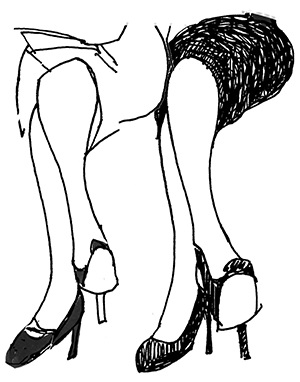





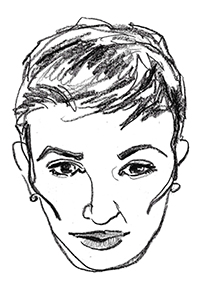










Leave a Reply